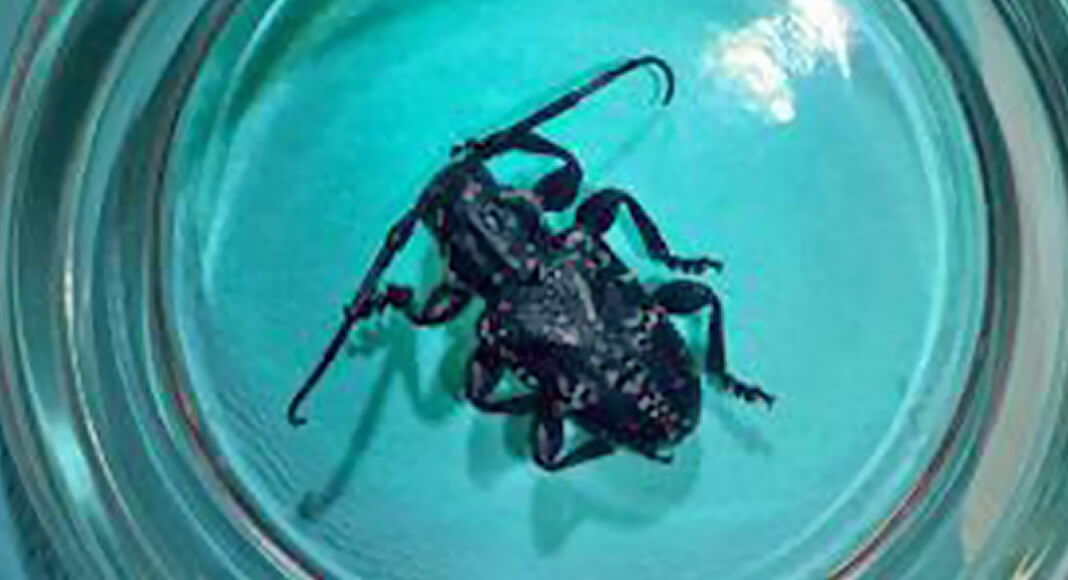
Texas Border Business
ROMA, Texas – Agriculture Specialists with U.S. Customs and Border Protection, Office of Field Operations (OFO) at the Roma Port of Entry intercepted a “First in Nation” pest, a beetle found within maguey leaves.
“Our frontline CBP agriculture specialists at Roma Port of Entry examine a significant amount of fresh produce shipments on a daily basis and their tenacity and dedication to the mission of safeguarding American agriculture led to their discovery of this first in nation pest interception,” said Port Director Andres Guerra, Roma/Rio Grande City Port of Entry.
The interception occurred on July 18, 2022, at the Roma International Bridge during an examination of a tractor trailer hauling fresh vegetables. During an examination of maguey leaves, CBP agriculture specialists intercepted a beetle which was submitted for identification to a local U.S. Department of Agriculture area entomologist. On July 20, 2022, the initial pest identification was confirmed as Acanthoderes funeraria Bates (Cerambycidae), a First-in-Nation interception, by the U.S. Department of Agriculture’s (USDA) Systematic Entomology Laboratory, Smithsonian Institution in Washington D.C. The shipment was refused entry and returned to Mexico.
Insects in the Cerambycidae family, also known as longhorn beetles, are known to feed on either wood materials or herbaceous plants, are considered invasive pests and may pose significant risk to the nation’s agriculture.












